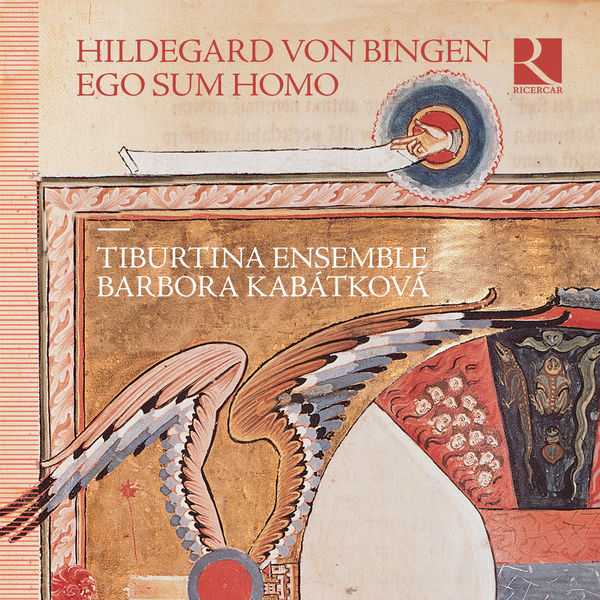

Composer: Hildegard von Bingen
Performer: Tiburtina Ensemble, Barbora Kabátková
Format: FLAC (tracks)
Label: Ricercar
Catalogue: RIC383
Release: 2017
Size: 921 MB
Recovery: +3%
Scan: yes
01. Sequentia O, Jerusalem, aurea civitas
02. Antiphona O, tu illustrata
03. Kyrie, eleison
04. Antiphona O, quam mirabilis est
05. Conductus praemii dilatio (Instrumental)
06. Hymnus cum vox sanguinis
07. Antiphona O, spectabiles viri
08. Antiphona nunc gaudeant
09. Conductus flos in monte cernitur
10. Antiphona O, beata infantia
11. Responsorium Ave, Maria
12. Antiphona caritas abundat (Instrumental)
13. Conductus Deus misertus hominis
14. Ordo virtutum: Virtutes / O, Deus, quis es tu?
15. Psalmus 8: Domine, Dominus noster
The dramaturgy of the project is inspired by the life philosophy of Hildegard von Bingen as is preserved in her musical and literary work. On the one hand we can perceive Hildegard as a mystic and saint woman, on the other hand as a strong abbess and politically gifted person. Those two points of view are the most important in the interpretation of her concept of human being. Her music and visions are full of humanity and divinity as well, it inspires me to call the concert programme “Ego sum homo” (I’m the man). The female vocal ensemble, Tiburtina, was established in 2008 from former members of the Schola Benedicta ensemble. It is built on its tradition and goes on to interpret western plainchant, medieval polyphonic music and contemporary music.
Hildegard von Bingen is a threefold miracle: miracle that there even existed a woman composer in the twelfth century, miracle that she wrote down (or had a secretary write them) her quite numerous compositions as well as signing them, and a miracle that the manuscripts survived the ordeal of eight hundred centuries and came down to us in perfect shape. We know the names of only very few twelfth-century composers, and in most cases the name is the only information we have, not linked to any scores. Hildegard is a revelation from this perspective as well. Her works of sacred music, which consist of 77 pieces, and the liturgical drama Ordo Virtutum constitute a separate compositional approach inspired by the monophonic tradition of Gregorian chant, but which was like nothing else in its time, a distinctive approach that no one was able to continue. Although Hildegard denies having had any tuition in neumes and singing, it can be supposed that this was merely a gesture of a person who simply could not admit her own skill. But from her Vita we know that Mistress Jutta, her tutoring abbess, taught her to sing the psalms and led her to give praise on the ten-stringed psaltery. We also know that the nuns at the Rupertsberg cloister had mandatory singing lessons. It is not clear what singing tuition consisted of in those days, but noting Hildegard’s difficult melismatic, often virtuoso compositions requiring a vast vocal range, it can be presumed that the lessons must have fulfilled at least some of the requirements of our day and age. She composed her chants for both important and local feast days of the liturgical year. Her music beckons to be experimented with. As something of a challenge, the Tiburtina Ensemble chose an improvised accompaniment of the monophonic vocals on the most ancient plucked string instruments – the harp and the zither (dulce melos).